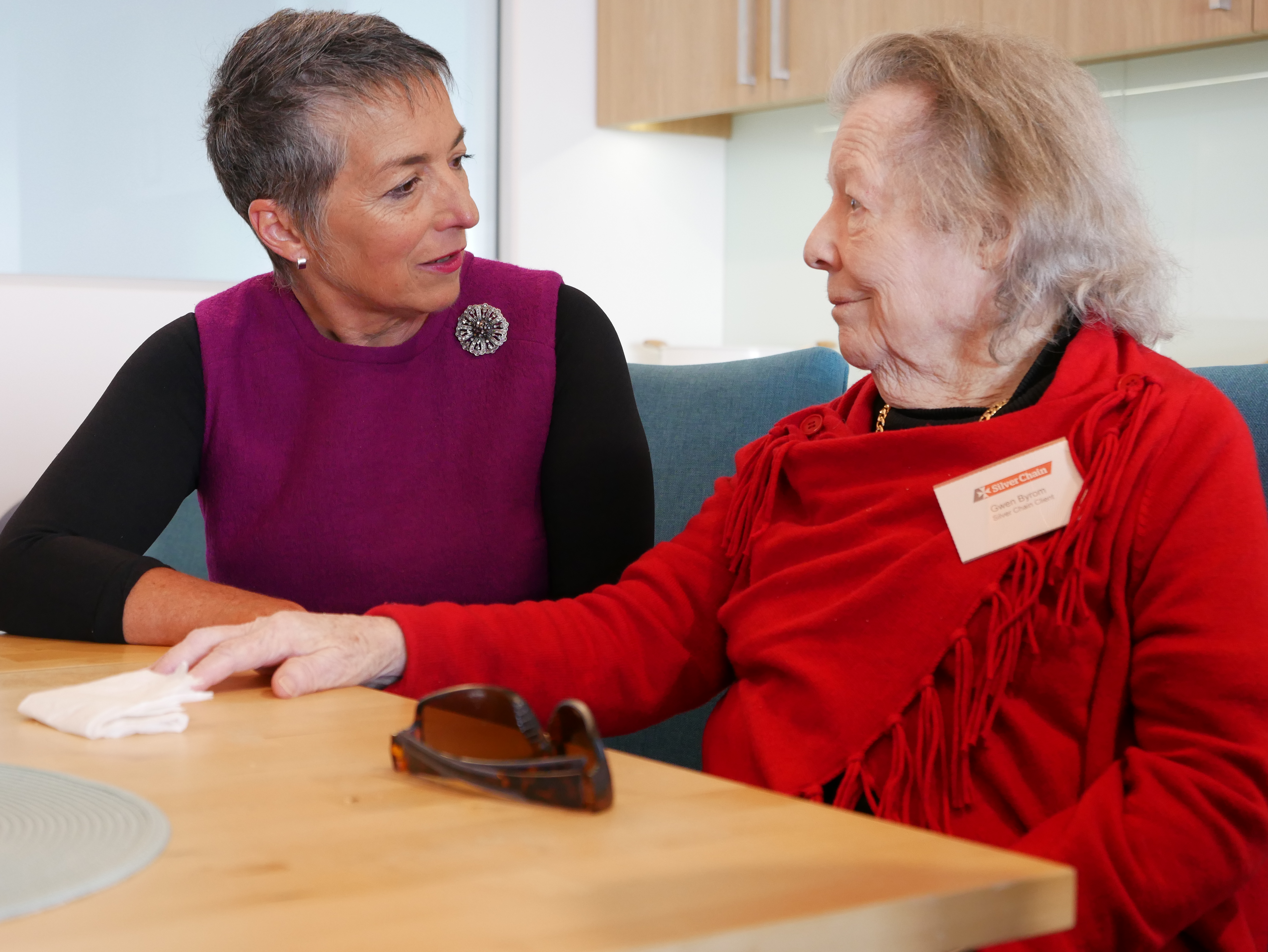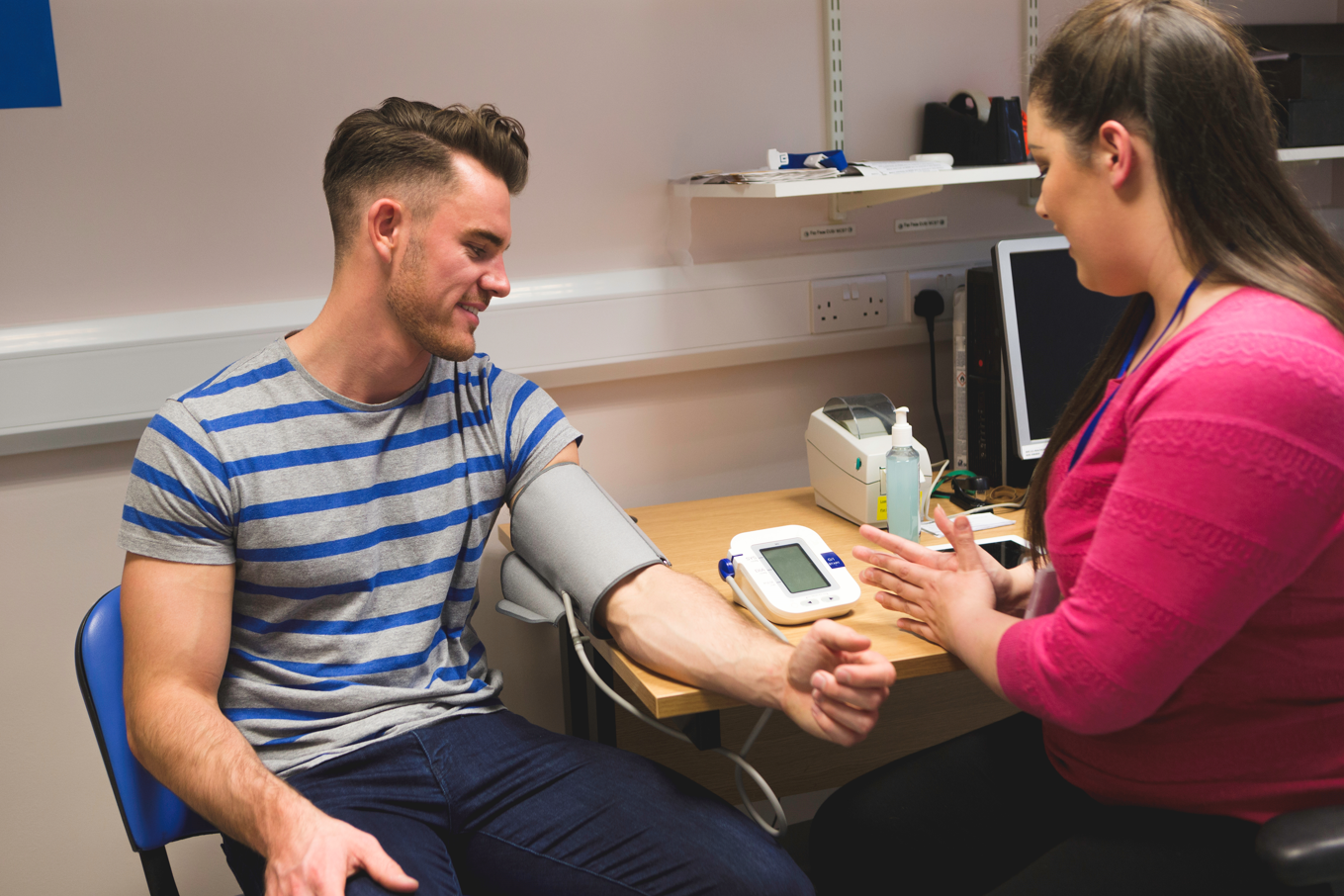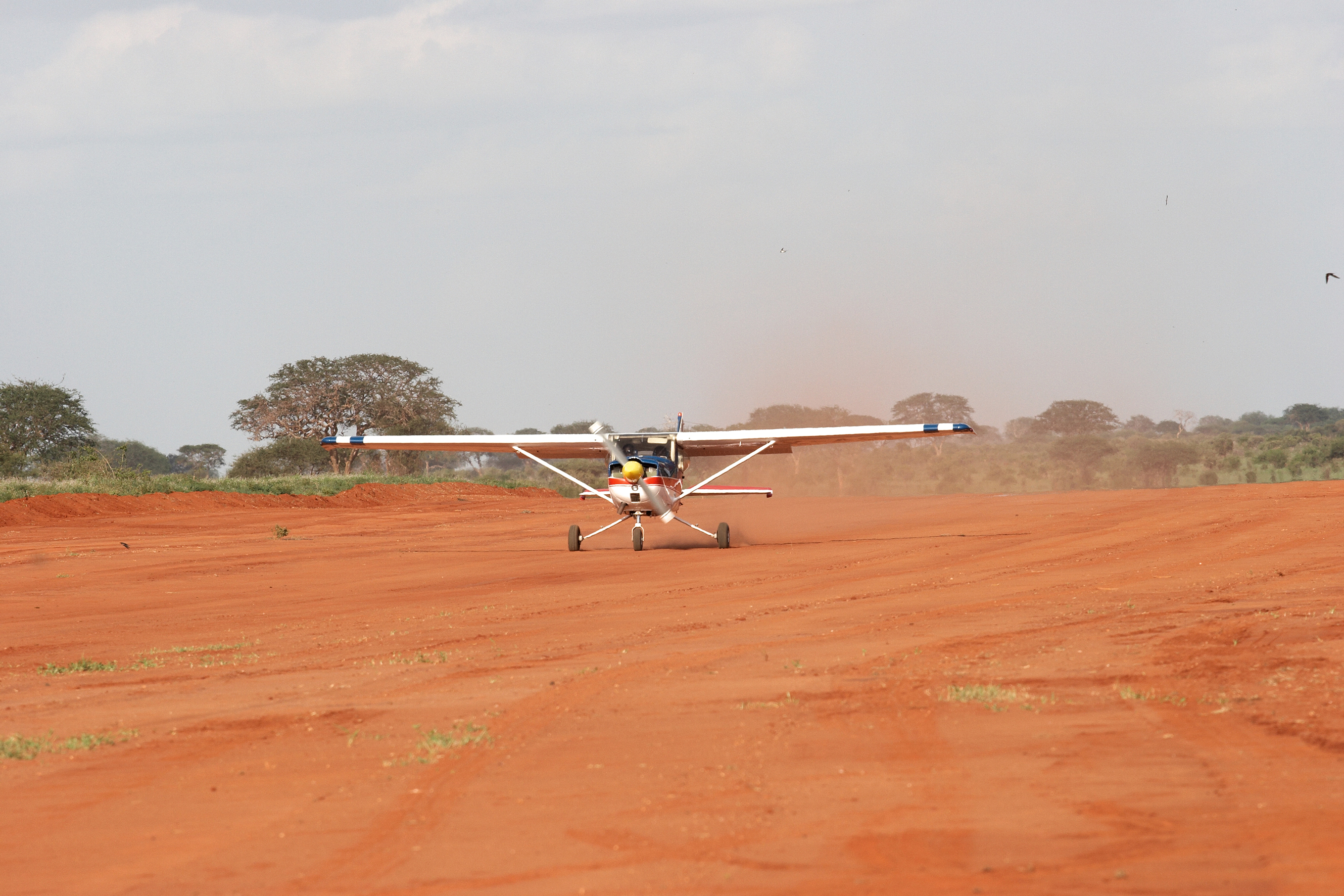Our objectives are to increase the efficiency and effectiveness of primary healthcare services for people, particularly those at risk of poor health outcomes and improve coordination of care to ensure people receive the right care in the right place at the right time.
Year in Review Highlights
Board Chair Dr Richard Choong
Our Board Chair, Dr Richard Choong, looks back at the year that was and reflects on our progress towards improving healthcare in the community and keeping people well and out of hospital.
CEO Learne Durrington
Our CEO, Learne Durrington, reflects on how as our organisation continues to grow and emerge, we are making progress towards improving access to primary care for Western Australians, particularly those at risk of poor health outcomes.
![]()
Year At A Glance
88
General practices enrolled in our Comprehensive Primary Care program working towards the Patient Centred Medical Home model
141
Organisations funded to deliver services and programs to improve the health and wellbeing of Western Australians
$97.8million
Spent on primary health services and programs across WA
4000+
Aboriginal and Torres Strait Islander people supported through our Integrated Team Care program
7932
People accessed one of our primary mental health services
341
General practices partnered with us to better understand patient data to improve health outcomes for their patients
411
Localised HealthPathways reached, with 115 new pathways localised this year
3
New headspace services launched to provide youth mental health support
5700
Visits to our online engagement platform, Primary Health Exchange
58
General practice newsletters sent to GPs, practice managers and practice staff
25
Policy submissions made to inform federal and state health policy and legislation
3
Needs assessments completed to quantify primary Healthcare demand and supply
Strategic Plan progress report
WAPHA’s 2017/2020 Strategic Plan provides an overview of our Strategic Priorities and key activities which are aligned to our vision and mission.
Health Equity and Access Person Centred Models of Care Integrated and Outcomes Focused Commissioning
Strong Partnerships Primary Care Capability Effective Operating Model

Health Equity and Access
We will identify the areas of greatest patient and service need from robust, detailed and impartial analysis of the data and information we have available. We will use the results of this analysis to prioritise the commissioning of services in the areas of greatest need.
The 2018 PHN Needs Assessments consolidated the key themes and issues of Western Australian population health and service provision needs. A consultation plan was developed to source qualitative data. This included the development of a digital portal for the collection of qualitative information from consumers and service providers. A wide range of data sources, available publicly or on request from data custodians, also informed the Needs Assessments produced for the three PHN regions.
A data request and analysis service was developed and implemented in December 2017 to provide detailed data analysis for health service planning for WAPHA staff. Data analysis services include mapping and spatial analysis, information, advice, reports and dashboard analytics. Since the the service began, 98 requests have been completed.
The Needs Assessments identified places with the greatest need for health services within a population target group. This data set informed community workshops, our Community Engagement Council and District Health Advisory Councils to determine our commissioning activities. We also considered the hotspot areas identified in the Needs Assessments to ensure hard to reach and at-risk groups of our population have equitable access to services. The commissioning process included consultation with our Clinical Commissioning Committees to ensure governance was maintained throughout the commissioning cycle.
Person Centred Models of Care
To address the priority health gaps and inequities identified in the needs assessment phase, we will develop contextualised, person-centred models of care.

Mental Health:
- To provide GPs a front door referral for their patients to access a range of stepped care mental health services.
We commissioned a mental health service across Country WA PHN to ensure consistency across service locations. The service offered low intensity support to care management, including linkages to community support and an online service.
Aboriginal Health:
- Improve the health and wellbeing of Aboriginal people travelling from rural and remote communities to Perth for treatment.
We released the Integrated Team Care Country to City: Improving Patient Transitions Project report in June 2018. We received $1.6 million from the Australian Government to implement the report’s 14 recommendations over the next three years.
Population Health:
- To commission patient centred chronic disease services to support clients to manage their health matters and work towards self-management.
Through care coordinators, the Integrated Chronic Disease Care program is being delivered across Country WA PHN. This position helps clients with co-morbid chronic conditions to improve self-management of their health through expert education, individual case management, support, goal setting and improved use of community Healthcare settings. The activity is also aimed to build the capacity of the primary Healthcare sector.
Alcohol and Other Drugs:
- To reduce harm from alcohol and other drug use by increasing access to effective and culturally appropriate services.
We commissioned a range of treatment and support services and workforce development initiatives to reduce harm from the use of alcohol and other drugs. These include increasing access to screening and brief intervention, counselling, relapse prevention and withdrawal services, particularly in areas of high need. Workforce development has focused on building the capability of primary care practitioners and the broader community services sector to recognise and respond effectively to alcohol and drug use, particularly for those people who also experience mental or physical health issues.
HealthPathways:
- To continue the localisation of health pathways in WA and commence pathway reviews.
We localised 115 pathways for WA and reviewed 30 pathways to ensure they were up to date and accurate. - Increase uptake of HealthPathways by GPs.
We hosted five GP education events in collaboration with Perth metropolitan hospitals to promote HealthPathways, which contributed to a 40 per cent increase in total sessions and a 20 per cent increase in page views on the HealthPathways WA website. - Engage clinicians with pathway development and localisation.
We held five clinical working groups with GPs and specialists to inform pathway development.
Digital Readiness in Rural Community General Practice:
- Identify factors enabling or discouraging the use of digital technology in rural general practice.
Stakeholder engagement was carried out to understand location factors such as social, geographical, economical and infrastructure through spatial statistical correlation methods, to generate a quantifiable measurement of factors influencing digital uptake in remote and rural locations. Of 226 surveys distributed to GPs and practice managers in the Wheatbelt, Goldfields and Pilbara, 84 were completed. The survey results showed a range of complex and interdependent factors influenced access and use across the three regions. The results of the project will be presented at the Health Information Technology Western Australia conference in November 2019.
My Health Record:
- Raise community awareness and ensure provider readiness for the My Health Record expansion.
In partnership with the Australian Digital Health Agency (ADHA) and WA Health, we began the My Health Record Expansion Program in WA. The project has been designed in three phases; provider awareness/readiness, consumer education and clinical enablement. Phase 1 ended on 30 June, with all KPIs set by the ADHA achieved. This included 100 per cent engagement with community pharmacy and general practice across WA as well as engagement with 53 medical specialists and 177 allied health providers.
We continued to respond to feedback from stakeholders to further develop the processes and practices that embed stakeholder partnerships throughout all areas of our work. This included adopting the Mental Health Commission’s consumer paid participation rates and partnering with Health Consumers’ Council to streamline processes for payments to community, consumer, family and carer participants.

Integrated and Outcomes Focused Commissioning
An integrated and outcomes focused commissioning framework will support us to establish services with our providers that are targeted to deliver improved outcomes to patients, and enable us to assess whether these services are delivering the results we are seeking to achieve.
We have worked to ensure all programs and services commissioned follow transparent and consistent principles and processes with regard to assessment of need, development and specification of service requirement, contracting services and the review and evaluation of service delivery. Since the development of WAPHA’s Outcomes Framework, we have worked intensively with service providers and our relationship managers to ensure our commissioned services achieve outcomes that address the identified needs.
Outcomes Framework: We revised the existing Outcomes Framework to allow for a select number of standardised indicators and measurement tools. The Framework now contains a set of consistent outcomes indicators developed to determine a client’s experience of care and to demonstrate changes in their health outcomes. These indicators can be applied consistently across commissioned services to enhance accountability and transparency for both WAPHA and our commissioned service providers. These will be integrated into the reporting required from commissioned service providers from January 2019.
Prioritisation Framework: We developed our Prioritisation Framework which provides a structured approach to WAPHA’s decision making. The Prioritisation Framework uses an agreed set of criteria to operationalise strategic priorities and supports our effort in shaping the supply of community-based treatment and support service through commissioned activities.
Our relationship managers worked closely with service providers to maintain accountability of commissioned services and to ensure the service is delivering against agreed outcomes.
Strong Partnerships
We will improve our relationships with our partners, through better coordinated relationship management, building opportunities to share knowledge and work together, and promoting the positive impacts of our work throughout the system.

We have refined our internal systems and processes to optimise our engagement with stakeholders. This included stakeholder mapping and engagement planning with our place-based teams and centralising the planning for key stakeholder engagement with government, peak bodies, GPs and allied health professionals.
We shared information and expertise across other PHNs and the Australian Department of Health in areas including the Outcomes Framework, Potentially Preventable Hospitalisation Hotspots Report, the WA Comprehensive Primary Care model, Integrated Primary Mental Healthcare including the European Alliance Against Depression framework and WAPHA’s innovative, system-based approach to stepped care. We were also represented on the PHNs’ Refugee Health, Healthcare Homes and Governance Communities and Council’s Sharepoint groups. WAPHA staff were active members on a number of PHN branch working groups including the deliverables working group and commissioning working group, as well as participating in the Mental Health Lived Experience Network.
Sustainable Health Review:
- To influence the consultation and outcomes of the Sustainable Health Review which prioritises the delivery of patient-centred, high quality and financially sustainable healthcare across WA.
WAPHA was invited by WA Health to facilitate engagement with primary care stakeholders and develop key primary care recommendations for the State Government’s Sustainable Health Review. The Review’s final report and recommendations for action will be delivered to the Minister for Health, Roger Cook, in November 2018. The partnership with WAPHA has been recognised as a key driver for the focus on the role of primary care in a sustainable and integrated health system for WA.
Lessons of Location:
- To form a strategic partnership project between WAPHA and WA Health by collaborating on the Lessons of Location report.
The Lessons of Location report was used to inform our strategy to address potentially preventable hospitalisations for high prevalence chronic conditions where care can be better integrated across the primary and hospital sectors.
Better Health, Together:
- To provide a mechanism for health professionals and community to inform and provide feedback to WAPHA on health and service planning.
In May, we launched Better Health, Together an online knowledge-sharing initiative that invites service providers, researchers, community, consumers, family and carers to share their insights and help inform primary care planning and delivery in WA.
This initiative also features the Better Health, Together video series, which gives stakeholders the opportunity to hear from our CEO on important primary healthcare topics such as the Sustainable Health Review.
Primary Health Exchange:
- Engage with community on upcoming health and social issues and projects.
Our online engagement website, Primary Health Exchange, had more than 5,700 visitors, an increase of more than 200 per cent in 2017/18 compared to the previous year.
External committee and reference group representation:
- Promote the role of primary care and support collaboration and integration.
We continued to represent the pivotal role of primary care through our membership across a range of external committees, advisory panels and reference groups. A snapshot of this includes the Sustainable Health Review, WA LGBTQI Health Strategy, Youth Cancer Advisory Committee, WA Clinical Senate, WA Council of the Ageing policy group, Mental Health Information Strategy Standing Committee, Looking Forward Ngulluk Koolunga Ngulluk Koort Translation Group (Telethon Kids Institute) and Mental Health Networks Executive Advisory Group (WA Mental Health Commission).
WAPHA committees and reference groups:
- Seek clinical, community and consumer advice in respect of WAPHA’s operations and commissioning.
The WAPHA Board reviewed the committee and councils structure in the reporting period. The new structure, to be implemented from July 2018, includes new clinical and community advisory councils for Perth South and Perth North PHNs. In Country WA PHN, each country region will continue to have a clinical committee. A Strategic Engagement Advisory Committee, comprising three Board delegates, will liaise with the committee and council chairs, including that for Aboriginal health and welfare.
Customer Relationship Management (CRM):
- Enrol stakeholders as CRM contacts and increase recorded activities.
We recorded 7044 contacts in CRM with 6358 associations with organisations. For the reporting period, the overall activity counter was 21,692 for total recorded communications by WAPHA across the state.
Alliance Against Depression (AAD):
- Support local alliances with stakeholders, as evidenced from the AAD implementation in Europe.
Local alliances were developed in suicide prevention trial sites (Midwest and Peel, Rockingham and Kwinana), with WAPHA facilitating stakeholder relationships within these communities.

Primary Care Capability
Increasing the capacity and capability of our providers and partners in the primary care environment will support the development of sustainable business models and a more skilled workforce able to deliver improved models of care.
We focused on the use of technology, expanded scopes of practice, role redesign, inter-professional training, multidisciplinary teams and shared care to address the shortages and maldistribution of key primary care professionals, including GPs.
We invested significant resources into supporting continuous quality improvement, safety and efficiency of general practice and other primary care providers. We launched our practice support service, Practice Assist, in partnership with Rural Health West and continued our other activities including HealthPathways, My Health Record training, Comprehensive Primary Care program and data driven quality improvement cycles targeted at key population health areas.
We partnered with Health Consumers’ Council to gain a consumer perspective on chronic condition management in primary care. This research drew on the findings from interviews with general practice teams completed in 2016-17. Consumers highlighted the value of long term relationships with a GP, individually tailored and delivered care planning and the significance of pharmacists as a source of accessible and appropriate advice. A third phase of the research to understand the perspective from allied health professionals was also initiated this year. Themes will be published by the end of 2018.
We partnered with WA Health, WA Health Service Providers, WA General Practice Education and Training, the Aboriginal Health Council of WA, Rural Health West and other agencies to plan for WA’s primary care workforce of the future. Our service planning decisions are dependent on an appropriate supply of a fit-for-purpose primary care workforce.
Through these partnerships we are developing innovative solutions to WA’s workforce challenges, particularly in expanding the scope of practice of the primary care workforce, building high performing practice teams and considering digital solutions such as telehealth and online service delivery.
We also developed a relationship with Curtin University’s new medical school to support the development of the practical primary care curriculum, and with WA Health Workforce Planning division in the development of prevocational training for WA general practice.
We hosted a variety of events aimed at developing emerging clinical leaders with 712 participants attending from a range of specialities including general practitioners, practice nurses, specialists and allied health disciplines. A breakfast briefing with Health Minister Roger Cook allowed for GPs and other health and social service leaders to hear about the Sustainable Health Review and provide feedback to influence improvements to the WA health system. We also hosted business development sessions for practice principals and networking sessions for clinicians from all disciplines to network with service providers.
Comprehensive Primary Care:
- Build capacity and capability within primary care to support general practice deliver a patient centred model of care that is sustainable and provides improved patient outcomes.
There are 88 general practices enrolled in our Comprehensive Primary Care program which provides the practice team with dedicated support tailored to their needs. Initiatives implemented through the program include CareFirst, motivational care planning for people with a chronic disease, Integrated Diabetes Care delivered through Perth Diabetes, and education for practice teams on engaged leadership, integrated team care and business performance and sustainability.
Health Care Homes:
- Transform the way care is provided for people living with a chronic and complex health condition.
Facilitators worked closely with 15 general practices in the Perth North PHN region enrolled in the Health Care Homes program to build capacity and capability to support coordinated care, improve patient health outcomes and increase productivity of health service providers.
Practice Assist:
- Support general practice providers, principals, managers and administrators to develop viable and sustainable businesses.
In October we launched Practice Assist, a joint initiative by WAPHA and Rural Health West.
The free service provides practices with support via a toll-free help desk number, face to face support and a dedicated website.
General practice data support:
- Build capacity and capability of the practice team to better understand, manage and optimise their patient data.
Through our data sharing agreements with 345 general practices, we provided them with a report on their patient data twice a year to support them to better understand their patient population.
Effective Operating Model
A refined and robust operating model will ensure we have the right structures, processes, governance and culture to realise our vision, mission and strategic objectives.

In October 2017, we implemented a new operating structure with four portfolios; Strategy and Health Planning, State-wide Commissioning and Engagement, Place-based Commissioning and Engagement and Corporate Services. The clinical and community council structure remained in place, as well as the continuity of the Board’s eight-person membership.
Our Outcomes Framework has been deployed across our funded services, with outcomes maps embedded as part of service contracts. A range of common indicators have been developed and relationship managers are working with the funded service providers to include these indicators in the outcomes maps. In the reporting period, 123 (75 per cent) of WAPHA’s service provider contracts were using outcomes maps for evaluation.
Needs Assessments: Our 2017 Needs Assessment was a comprehensive report of primary care needs and service requirements identifying service priorities.
Primary Mental Healthcare Minimum Data Set (PMHC MDS): We employed a PMHC MDS project officer to train, educate and support our commissioned service providers to report to the PMHC MDS. Prioritisation Framework The Prioritisation Framework was implemented, which is a short set of questions, which quantify the extent to which funded services are aligned to program and organisational objectives.
Data request service: We now offer an internal data request service for staff, including data analysis, forecasting, mapping and interactive dashboards. In addition, we secured a number of new data sets from external agencies to underpin planning, monitoring and evaluation.
Service provider reports: Of all WAPHA-funded services, 75 per cent of providers used the outcomes maps for the evaluation of their service.
General practice data sharing: Of all general practices across the state, 57 per cent are sharing de-identified practice data with WAPHA. Reports are due to roll out to all practices sharing data with WAPHA in the second half of 2018 to support them to improve services, care, operational efficiency, safety and systems.
Our cloud computing systems were upgraded to the CSX2 environment, providing a stronger virtual infrastructure and security environment for staff state-wide. New NBN internet connections were installed in all regional offices which included remotely managed firewall and monitoring to strengthen the network further. A cyber incident response plan was drafted to handle any potential incidents based on the National Institute of Standards and Technology and SANS guidelines. The plan specifies the policy, tools, training and forms required for incident identification, reporting and escalation across WAPHA. Practice data Memorandums of Understanding were revised and updated, with overarching agreements signed between WAPHA and both the Mental Health Commission and WA Health.
Culture program: We re-launched our culture program in February 2018 under the banner of “Club WAPHA – it’s about being a team player”. Staff participated in regular group activities and projects that span the organisation and the program aims to proactively steer the creation of a positive organisational culture.
Benchmarking survey: We participated in an annual staff benchmarking study, conducted by Best Practice Australia. The study provided insights into how well we are tracking against our PHN benchmarking partners in areas such as leadership landscape, staff engagement levels, and demonstrating our values. This year we achieved an 86 per cent participation rate and an overall assessment as having a ‘culture of success’.
Reflect Reconciliation Action Plan: In May 2018 we launched our Reflect Reconciliation Action Plan to support staff to improve their effectiveness in delivering respectful services to improve Aboriginal health outcomes in Western Australia. An internal working group is supporting the organisation to achieve the targets and outcomes set within the plan.
Rainbow Tick Accreditation: We started the work required to achieve the six national standards of the Rainbow Tick Accreditation. Rainbow Tick is a set of standards that supports organisations to develop and implement inclusive practices for people who identify with lesbian, gay, bisexual, transgender and intersex (LGBTI) communities.
Prioritisation Framework: The Prioritisation Framework was implemented, which is a short set of questions, to quantify the extent to which funded services are aligned to program and organisational objectives.

Place-based initiatives
Read some of our regional highlights
Kimberley Sexual Abuse Prevention and Support Service
We supported the Kimberley Sexual Abuse Prevention and Support Service by funding the relocation of child interview facilities out of the Broome Police Station to the Anglicare WA Broome office. The interview rooms provide a more appropriate setting for children and their families who are interviewed following sensitive and/or traumatic events.
Drug and Alcohol Treatment Service for young people
We funded an alcohol and other drug service for young people aged eight to 14 years in South Hedland. The service provides holistic care through age appropriate group activities, specialised individual counselling, outreach support to families and referral to a range of primary care services.
In the reporting period, 46 young people reported a reduction in their alcohol and drug use, 66 per cent reported no use over a six-month period and 100 per cent reported increased feelings of wellbeing in their psychological and physical health, social wellbeing and cultural integrity.
Western Desert Wama Wangka
We supported the development of a short film that captured a series of powerful narrations that showcased 14 emerging Martu leaders talking about impacts of alcohol on their families and communities. The film has been directed towards other Martu and as a result a Wama Wangka has been established. Wama Wangka translates as “alcohol talking” and is a synonym for Martu Alcoholics Anonymous. The film has been highly successful and through further funding from WAPHA, additional footage will be collected over the next 12 months.
Healthy Minds, Healthy Life Expo
In May, our Healthy Minds, Healthy Life Expo in Geraldton brought together 24 organisations to showcase their services and provide information to stakeholders and community members about how to access the services. The event attracted 300 visitors including GPs, health professionals and community.
Immunisation/Influenza Vaccination Workshop – Geraldton
In partnership with WA Country Health Service we held two immunisation workshops in Geraldton with 120 health professionals from across the Midwest attending. Local pharmacists attended a workshop for the first time and were able to contribute information that benefited other health professionals.
Clinical Specialist Team
We established the Clinical Specialist Team as a pilot program to address methamphetamine use in Northam, comprising of a comprehensive service mix including clinical case management, counselling, medical and peer support. The service is delivered in a holistic way, focusing on a person’s mental and physical health.
Primary Health Nurse Practitioner Program – Eastern Wheatbelt and Upper Great Southern
The Primary Health Nurse Practitioner program works collaboratively with local health teams in various locations across the Eastern Wheatbelt and Upper Great Southern regions to achieve better health outcomes for people with complex and chronic conditions and to improve community access to preventative and primary care in locations with limited access to a GP.
Koolangka Yaakiny – Youth Standing Up program
The Koolangka Yaakiny – Youth Standing Up program was created after five agencies gathered to share ideas and identify ways they could partner with and strengthen each other to make a positive impact on young Aboriginal people. The program has helped increase awareness of mental health and alcohol and other drugs, and increased service access. Bun bury Police Youth Crime Diversion also reported a reduction in nuisance crimes in the Withers area as well as an increase in school attendance rates.
headspace Busselton
The headspace Busselton satellite service was launched in June 2018. The service will provide specialist early intervention mental health and wellbeing services for young people aged 12 to 25 through a range of specialist mental health workers including GPs, counsellors, psychologists and social workers.
Moodich Vorgas Yundarn Yarns
Through Moodich Yorgas Yundarn Yarns, Aboriginal Elder women share their story and culture using natural fibres and local plants, enabling them to connect to culture, country and share language and stories with the young people struggling with methamphetamine and other addictions.
Red Dust Healing training
Through Red Dust Healing, 357 Aboriginal and 25 non-Aboriginal people have received training and education. The training provided participants with a focus on grief, loss and shame, and building capacity through resilience, good decision-making, and community input.
Grow Local Mental Health training
The Grow Local pilot program was completed with 28 people graduating with a Certificate 4 Mental Health, which represented a 75 per cent graduation rate. There is now a local qualified and competent employee pool to help enable a culturally appropriate service delivery model. WAPHA worked closely with local Aboriginal communities and other stakeholders to ensure the course would be suitable for Aboriginal people and with the Australian Medical Association WA (AMA) training division who designed and delivered the unique and regionally tailored training.
After hours alcohol and other drugs (AOD) and mental health service
A new after-hours alcohol and other drugs and mental health service opened in the Northern Goldfields to address issues relating to alcoholrelated harms and lack of community mental health support. This service is locally based and employs graduates from the Grow Local program.
Peer2Peer program
Mental Illness Fellowship WA delivered the Peer2Peer program in partnership with Consumers of Mental Health WA and St John of God Midland Public Hospital. Eight community-based peer support workers provided transitional support for 65 people in the mental health unit at the hospital to home upon discharge. They also provided more than 1100 hours of practical assistance transitioning from hospital to home, facilitated access to community services and supports and access to primary healthcare.
Swan City Youth Service
Swan City Youth Service provided culturally appropriate counselling, outreach support and case management for 72 young people with alcohol and drug issues.
St John of God, Raphael Services – Driving Change: Pregnancy, Parenting and Alcohol and Other drugs conference
We supported delivery of the conference which explored research, practices and new developments related to the use of alcohol and other drugs during pregnancy and parenting. The conference was attended by 129 delegates from 35 organisations, who work with families during these critical life stages. With an emphasis on parent-child attachment, topics included developing a foetal alcohol spectrum disorder hub, asking women about alcohol use in pregnancy and the impact of domestic violence.
Persistent Pain Program
Following consultation with those involved in treating pain in both primary and tertiary health settings, we funded three service providers to deliver the Turning Pain into Gain program in Wanneroo, Midland, Armada le and Rockingham. The community-based program is designed to support GPs to manage patients affected by persistent pain, by improving self-management through individual coaching, coordinated allied healthcare and a six-month education program.
Belmont Health Professional Network grant
A grant by WAPHA enabled the formation of the Belmont Health Professional Network, a formal network of GP practices, pharmacies and allied health within the local government area. The network is led by local clinicians who will partner with us to develop quality improvement initiatives to support people with chronic conditions.
Diabetes educator and pharmacist for AMS
Fortnightly clinics with a diabetes educator and pharmacist were piloted at Derbarl Yerrigan Aboriginal Medical Service to increase access to care and support for Aboriginal people. The success of the clinics resulted in the health service provider continuing to deliver the service following the trial of the pilot.
headspace Mandurah
Planning and procurement was carried out for the launch of headspace Mandurah, scheduled to open in July 2018. The service, to be delivered by 360 health + community, will provide young people, their families and friends with early intervention mental health, physical health, work and study support, and alcohol and other drug services.
Alcohol Screening and Brief Intervention Project
South Metropolitan Health Service and the National Drug Research Institute were funded to determine the feasibility of alcohol screening, brief intervention and referral to GPs within emergency settings. Patients presenting to ED at the Fiona Stanley and Rockingham hospitals, who were screened and identified at high risk, were seen by the Inpatient Alcohol Team for follow up and possible referral for treatment. Those at moderate or high risk were provided a brief intervention and had their results sent to their nominated GP. The project, a finalist in the 2017-2018 WA Health Excellence Awards, has demonstrated that the Alcohol Screening and Brief Intervention project does reduce alcohol consumption for individual patients for up to three months and confirmed that changing culture and attitudes about alcohol is a difficult an ongoing process.



